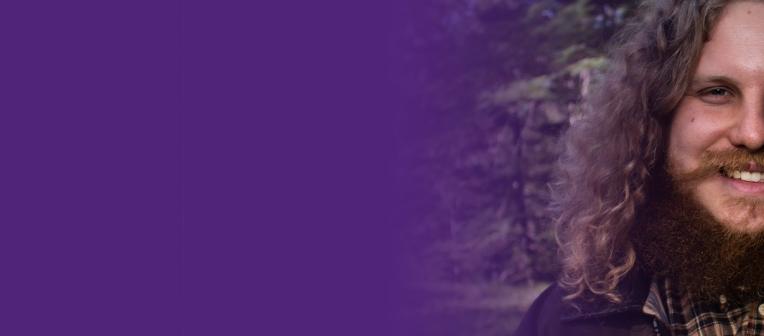Coen Hird is among four early-career Indigenous scholars from Australia, the USA and Aotearoa (New Zealand) who have provided insights on the representation of Indigenous voices, knowledges and practices in the biological sciences.
Coen, a trawlwoolway pakana (northeast lutruwita Tasmania), is a University of Queensland PhD candidate and a co-author on a well-received article in the Journal of Experimental Biology.

The article notes that greater engagement and representation of Indigenous voices, knowledges and worldviews in the biological sciences is growing globally through efforts to bring more Indigenous academics into scientific research and teaching institutions.
“Although the intentions of such efforts may be admirable, these spaces often become sites of great personal tension for the Indigenous scholars who must ‘bridge’ or ‘facilitate’ a dialogue between Indigenous and settler-colonial (predominantly Western) knowledge traditions and worldviews,” the authors state.
“We call on scientists to question their hidden assumptions about scientific knowledge and challenge power relationships between their institutions and Indigenous peoples and worldviews.
“Despite the tensions discussed … many Indigenous people remain in academia to create a future where we can exist and flourish within the sciences. Our persistence benefits the entire academic community who share like-minded interests in understanding and protecting the planet.
“Many scientists working on natural systems do so from a place of love for and connection with the natural world yet can unknowingly inherit from colonial science ways of working which are harmful to Indigenous peoples.
“Scientists must ask: how does engaging with the natural world solely as an object hinder our understanding and engagement with relational ethics and Indigenous ways of being and knowing?
“Scientists can benefit from building a better appreciation of the cultural significance of their study systems and field sites, and challenging assumed knowledge superiority over Indigenous knowledges.
“Scientists on stolen lands should ask how they can support Indigenous peoples in upholding their cultural responsibilities, and whether their methodologies violate these responsibilities. The scientific community must honour Indigenous rights, including free, prior and informed consent, mutually agreed terms, and access to benefits in engagement with relevant Indigenous communities.”
Journal Editor-in-Chief, UQ Professor and President of Academic Board Craig Franklin has provided a commentary, noting that the article “challenges us to think about our practice as biologists, and all the social and cultural interactions that entails”.
“Their aim … is to provide advice and reflections for the scientific community so that more nuanced strategies can be developed to support Indigenous academics and where Indigenous knowledges and practice can mesh with settler-colonial scientific traditions,” Professor Franklin said.
“The perspective is likely to be viewed by some as provocative, but the messages it conveys are underpinned by the principles of inclusivity and respect. We hope that this article makes our JEB community pause and ask: do we really work within our belief in the values of diversity and inclusion, and can we do better?”
Mr Hird said the journal article developed naturally from online ‘yarn sessions’, sharing examples such as being taken to sacred sites without permission, seeing Indigenous scientists and science generally privileged over other knowledge holders, or seeing whole fields of science and knowledges erased in teaching materials we inherit.
“I was personally motivated by my own experiences seeing Indigenous sovereignty, rights, and knowledges essentially ignored in research and teaching environments, or held as peripheral to daily academic life, where for me it should be centred in what we do as scientists on Aboriginal land.
“I’ve experienced many of the tensions we discuss in the article, including finding out after field trips that course coordinators are taking you, other Indigenous students, and really all students to extremely sacred sites without permission from local mob.
“Another thing that pops up a lot in my line of work is the objectification of the natural world, which scientists are trained to do to pursue objective thinking. They inherit ways of thinking that are often at odds with Indigenous knowledges and ways of thinking, which puts them in awkward positions considering they work on stolen lands, often on culturally significant plants/animals/places.
“The biggest piece of advice we have is to properly centre Indigenous rights and justice in what you do on stolen lands, and not regard it as peripheral. The politics is inescapable. Carrying on business as usual in science may seem like a good way to avoid politics, but it is actually a strong political position and reinforces power hierarchies and dominant ways of doing science to the detriment of Indigenous peoples and our kin.
“We, like many before us, ask settler scholars to really grapple with and engage in discussion about their worldviews, the history and philosophy of science, and how these intersect with Indigenous knowledges as equally valid ways of thinking and knowing. We feel that we are at a turning point in global scientific culture and ask as many people as possible to help us grow as a community where Indigenous scientists and Indigenous knowledges would not just survive but thrive.”

